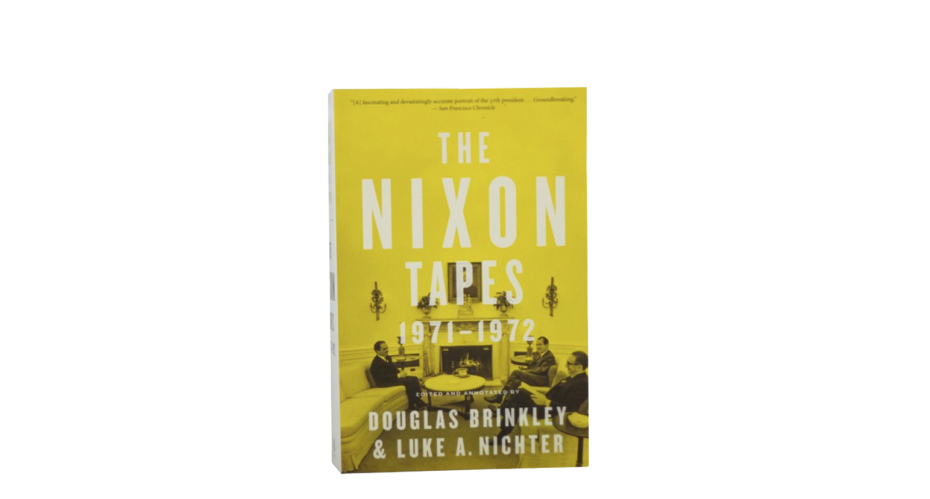In August 2013, the final 340 hours of Richard Nixon’s infamous tapes were declassified by the National Archives — out of the 3,000 hours currently approved for release — after years of litigation and processing. Finally we can learn what Nixon said in his most crucial, private conversations—about China, Vietnam, the Soviet Union, his reelection campaign, and such rivals and allies as Ronald Reagan, George H. W. Bush, JFK, Ted Kennedy, and Henry Kissinger.
The Nixon Tapes may be history’s best opportunity to study how a president operates in real time and learn what he really thinks. And not just any president, but Richard Nixon, one of the most complex and Shakespearean of all.
It is often forgotten that prior to the eruption of the Watergate scandal of 1973, President Richard Nixon was on a stunning political roll. In 1972 he opened relations with China, as reflected in his famous handshake with Chairman Mao, and made a first-ever presidential visit to Moscow, signing the long-delayed SALT I arms treaty with General Secretary Leonid Brezhnev. The war in Vietnam was winding down, yet he bombed Hanoi even as he and Henry Kissinger closed in on a secret peace agreement. The public approved. In November, Nixon won reelection with 61 percent of the popular vote, carrying 49 states. Only after the election, in 1973, would the Watergate scandal change everything for Nixon. In 1972, he was on top of the world.
Between February 1971 and July 1973, Nixon’s voice-activated tape recorders captured 3,700 hours of conversations. Many of them have been newly transcribed for this volume of The Nixon Tapes, which presents the thirty-seventh president at work in critical meetings and historic confrontations, as well as moments of unguarded reflection. Edited to reveal an era of intense turning points all in one book, it gives readers moment-by-moment access to one of the most complicated human beings ever to occupy the White House.
Thanks to the painstaking transcriptions by Professor Luke A. Nichter, and annotations and commentary by Nichter and Professor Douglas Brinkley, the most important and revealing conversations from this massive trove can now be seen. This volume covers the years when Nixon was intensely focused on foreign policy — to the total exclusion of domestic issues. There are revelations on every page, showing all sides of Nixon’s complex, contradictory character; his strategic and political thinking; his paranoia; and his circles within circles of advisers. The Nixon Tapes offers an unsurpassed, candid record of a contentious, world-changing time.
Publisher
Houghton Mifflin Harcourt
Published
2014
Formats and Editions
Hardcover
Paperback
Kindle
Purchase book at these available locations:
Praise for The Nixon Tapes: 1971-1972
“Douglas Brinkley and Luke Nichter… have heroically compiled a huge, fascinating and devastatingly accurate portrait of the 37th president…groundbreaking” — San Francisco Chronicle
“A monumental accomplishment. . . Nichter’s decade of research into the tapes has only deepened his understanding of this rich period of U.S. history, and his collaboration with Brinkley will only enrich Americans’ knowledge of the Nixon administration.” — USA Today
“An eye-opening reckoning of crimes, misdemeanors and bugging technology 40 years after Richard Nixon’s ignominious departure from the White House . . . Essential for students of the era and fascinating for those who lived it.” — Kirkus Reviews, starred review
“Strangely addictive.” — Los Angeles Times

